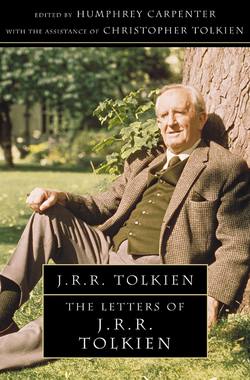Читать книгу The Letters of J. R. R. Tolkien - Christopher Tolkien, Christopher Tolkien - Страница 50
45 To Michael Tolkien
Оглавление[Michael was now an Officer Cadet at the Royal Military College, Sandhurst.]
9 June 1941
20 Northmoor Road, Oxford
My dearest Michael,
I was so glad to hear from you. I would have written earlier to-day, only Mummy carried your letter off to Birmingham, before I had time to do more than glance at it. I am afraid that I show up badly as a letter writer: but really I get sick of the pen. Lectures ended on Thursday, and I hoped to get a little while (a) to rest, and (b) to put some order into the garden before ‘Schools’1 begin on Thursday (Corpus Christi). But the everlasting rain has prevented my outdoor work, and lots of extra business prevented any rest. I sympathize with Govt. officials! I have spent most of my time of late drafting rules and regulations,2 only to find all kinds of loopholes as soon as they are in print, and only to be cursed and criticized by those who have not done the work, and won’t try to understand the aims and objects!. . . .
One War is enough for any man. I hope you will be spared a second. Either the bitterness of youth or that of middle-age is enough for a life-time: both is too much. I suffered once what you are going through, if rather differently: because I was very inefficient and unmilitary (and we are alike only in sharing a deep sympathy and feeling for the ‘tommy’, especially the plain soldier from the agricultural counties). I did not then believe that the ‘old folk’ suffered much. Now I know. I tell you I feel like a lame canary in a cage. To carry on the old pre-war job – it is just poison. If only I could do something active! But there it is: I am ‘permanently reserved’, and as such I have my hands too full even to be a Home Guard. And I cannot even get out o’nights to have a crack with a crony.
Still you are my flesh and blood, and carry on the name. It is something to be the father of a good young soldier. Can’t you see why I care so much about you, and why all that you do concerns me so closely? Still, let us both take heart of hope and faith. The link between father and son is not only of the perishable flesh: it must have something of aeternitas about it. There is a place called ‘heaven’ where the good here unfinished is completed; and where the stories unwritten, and the hopes unfulfilled, are continued. We may laugh together yet . . .
Did you see Maxwell (the ‘tobacco-controller’s’)3 account of what the wholesale dealers were doing! They ought to be in quod. . . . . Commercialism is a swine at heart. But I suppose the major English vice is sloth. And it is to sloth, as much or as more than to natural virtue, that we owe our escape from the overt violences of other countries. In the fierce modern world, indeed, sloth does begin almost to look like a virtue. But it is rather terrifying to see so much of it about, when we are grappling with the Furor Teutonicus.
People in this land seem not even yet to realize that in the Germans we have enemies whose virtues (and they are virtues) of obedience and patriotism are greater than ours in the mass. Whose brave men are just about as brave as ours. Whose industry is about 10 times greater. And who are – under the curse of God – now led by a man inspired by a mad, whirlwind, devil: a typhoon, a passion: that makes the poor old Kaiser look like an old woman knitting.
I have spent most of my life, since I was your age, studying Germanic matters (in the general sense that includes England and Scandinavia). There is a great deal more force (and truth) than ignorant people imagine in the ‘Germanic’ ideal. I was much attracted by it as an undergraduate (when Hitler was, I suppose, dabbling in paint, and had not heard of it), in reaction against the ‘Classics’. You have to understand the good in things, to detect the real evil. But no one ever calls on me to ‘broadcast’, or do a postscript! Yet I suppose I know better than most what is the truth about this ‘Nordic’ nonsense. Anyway, I have in this War a burning private grudge – which would probably make me a better soldier at 49 than I was at 22: against that ruddy little ignoramus Adolf Hitler (for the odd thing about demonic inspiration and impetus is that it in no way enhances the purely intellectual stature: it chiefly affects the mere will). Ruining, perverting, misapplying, and making for ever accursed, that noble northern spirit, a supreme contribution to Europe, which I have ever loved, and tried to present in its true light. Nowhere, incidentally, was it nobler than in England, nor more early sanctified and Christianized. . . . .
Pray for me. I need it, sorely. I love you.
Your own Father.
